It was still dark as people began lining up outside of the gates of the Wise County Fairgrounds on a recent July morning with their yellow tickets in hand. Stamped in black on the yellow slips of paper were numbers that represented the order in which people would be admitted into the fairgrounds. Those with the lowest numbers had arrived at least a day before, camping out in the parking lot, desperate to ensure their spots.
The tickets were not for some big-name rock band or a meeting with any heads of state. These passes were for something much more crucial to the survival of the people holding them – free medical care.
“A lot of people around here has [sic] jobs, but they donʼt have money to afford the insurance,” said Phyllis Hammonds, 55, of Wise County, who sat in the parking lot wrapped in a blanket to block the cool morning air as she waited for her number to be called. “I can’t afford none of it on my own.”
Remote Area Medical Volunteer Corps. has held free medical clinics for the past 10 years in Wise County, Va., a distressed community in Appalachia. The clinics, which are held during a weekend in late July, draw people from the immediate area and surrounding states. The clinic is part of RAMʼs mission to provide free medical care and veterinary services to rural communities across the country and around the world.
The nonprofit organization is based in Tennessee and relies on the volunteer work of thousands of doctors, dentists, surgeons, optometrists, nurses, veterinarians and community members to make the expeditions a success. RAM conducts more than a dozen expeditions a year in the United States alone.
This year’s Wise County clinic was held as Congress and President Barack Obama mulled a major overhaul of the nation’s health-care system, including a government-run insurance component.
RAM Founder Stan Brock says his clinics, which draw thousands of people at each location, are evidence that health-care reform is long overdue.
“This is not a new problem here in the United States. This is a problem of access to care for all of these people that are in that uninsured, unemployed and people with jobs who don’t have adequate insurance category,” Brock said. “There’s a lot of national attention being focused on this at the moment, but actually it’s a problem that [has] existed for decades and decades. But now that there is a lot of focus on it, maybe something will be done to fix it.”
A majority of the people who attend the RAM clinics are between 29 and 66 years old and most seek dental and vision care. That’s because government programs such as Medicare and Medicaid don’t cover such care and emergency rooms are not required to provide it, organizers say.
Melissa Martinez, 39, of Marion, Va., got to the Wise County clinic at noon the day before and was among those who camped out in the parking lot overnight to get a ticket to see a dentist.
“Isn’t it a shame that it’s come to this? People got to sleep in their cars all night long just to get needed dental care,” said Martinez, who held ticket No. 31. “We’re one of the wealthiest countries and yet we have all this. ”
By 5 a.m. organizers opened the gates to the Wise County Fairgrounds and Brock announced numbers into a megaphone as those in need of care crowded around, listening intently for their numbers.
“Two-ninety-eight, 299 and we’re up to 300,” Brock called. “Whose got number 300?”
Sandra Moore, 53, and her daughter, Gretchen Mullis, 35, both of Wise County, were among the thousands waiting to be admitted. Moore, who has been wheelchair bound since suffering a stroke in 1996, needed dental work and a mammogram. Her daughter, who has a debilitating eye disease, needed new glasses. Both women have attended RAMʼs Wise County clinic each year since its inception a decade ago.
“I have Medicare and Medicaid, but it doesn’t cover dental,” said Moore, whose husband, a Vietnam veteran and former coal miner, suffers from cancer and Alzheimer’s disease. “I have epilepsy and it causes your gums to have changes in them, so I have to have my plate realigned. … This year, theyʼre going to pull the rest of my teeth and make me a plate.”
Once their numbers where called, patients were allowed into the fairgrounds where the scene was like that of a refugee camp in a third-world country. A horse barn was transformed into a registration area, a poultry house served as an eye exam gallery and large open-air tents sheltered rows and rows of dental chairs.
Patients went to the registration area first and signed in with just their names and addresses. Then they went into a triage area where their blood pressures and other vitals were taken before a volunteer escorted them to either the dental, vision or medical sections for care.
At each section patients had to get in yet another line and wait their turns to see a health-care provider. Many passed the time by either talking to others in line, reading books, watching passersby or snacking on cereal bars and other treats provided by RAM.
Beth Fletcher, 28, of Marion, Va., was among those waiting to see a dentist. She needed her teeth examined and at least one filling. She also planned to get an eye exam and take advantage of other care options.
“Iʼm here because my friends told me about it and Iʼm poor and I donʼt have a job,” Fletcher said. “It was going to cost me and my husband like $1,300 [or] $1,400 a month to keep the insurance that I had when I was working. Itʼs crazy.”
Of the 2,715 patients who received care during the three-day Wise County clinic, more than half were uninsured and the rest were underinsured, organizers say.
Dr. French Moore III, who has a private dental practice in Abingdon, Va., was one of a handful of dentists fitting people for dentures during the clinic. He has volunteered with RAM several times and is happy to provide his services to people who otherwise would not be able to afford it.
“To me itʼs just an extension of what I do,” Moore said. “I just think [RAM is] a group of caring people who get together to take care of those who need care. Itʼs good for both sides. Itʼs good for the people who work it and itʼs good for the people who need the care.”
RAMʼs 1,800 medical volunteers made 5,598 patient encounters and provided about $1.64 million worth of care at a cost of about $250,000 during the Wise County clinic.
They pulled 4,304 teeth, made 1,029 pairs of glasses, filled 1,668 cavities and had 2,653 patient encounters in the general medical care unit.
Nearly every patient who received care expressed great appreciation for the clinic. Without it, they wouldnʼt have anywhere else to turn.
“Itʼs very important because you canʼt afford medical stuff,” said Frank Meade, 52, a resident of St. Paul, Va., who sought vision and dental care at the clinic. “I wait from year to year for the clinic. This is a wonderful thing.”

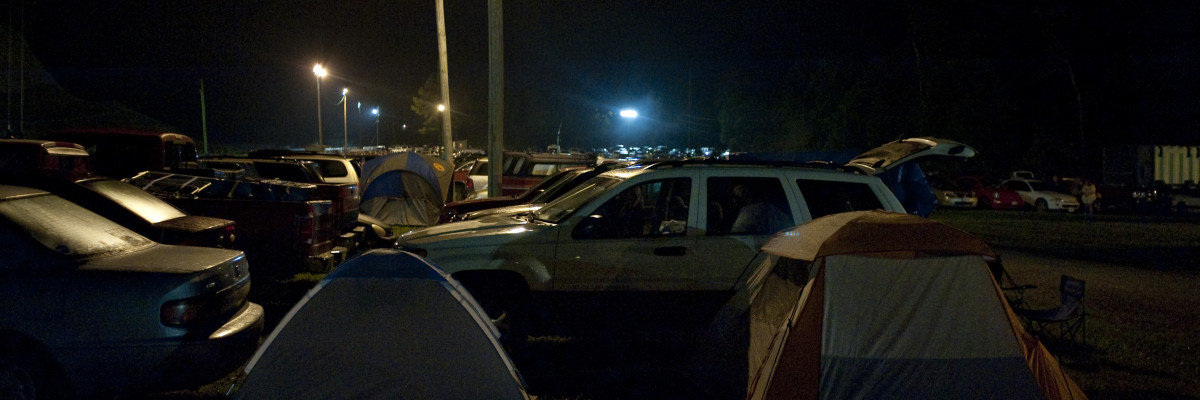
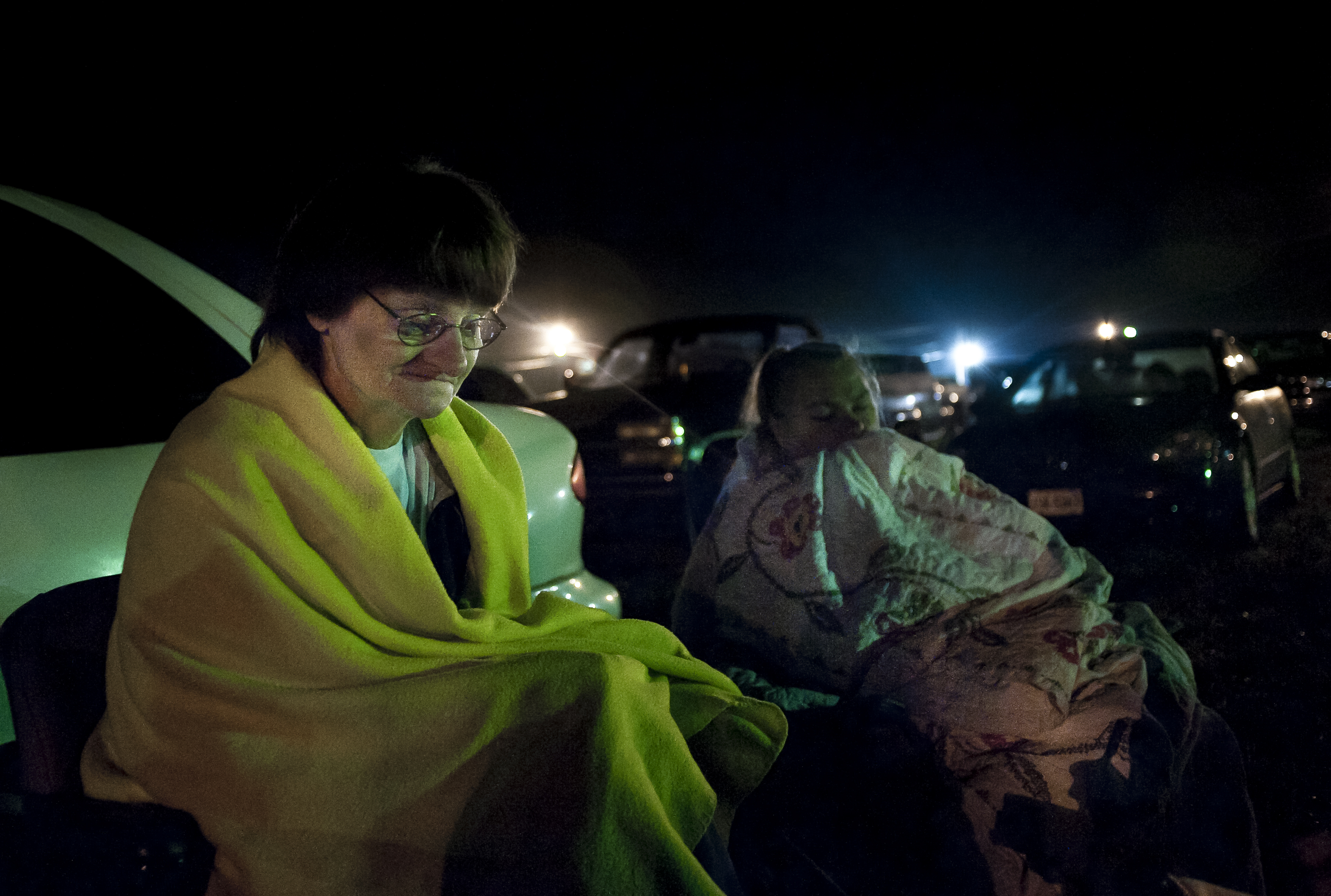
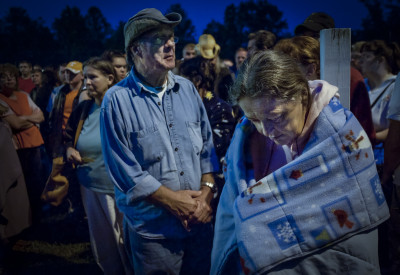
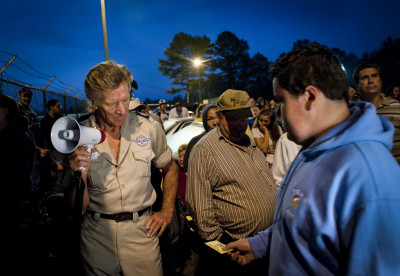
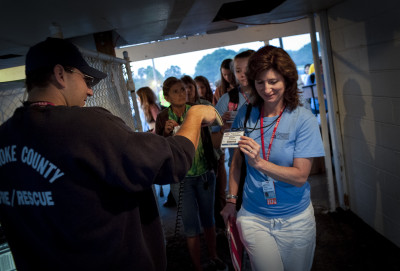
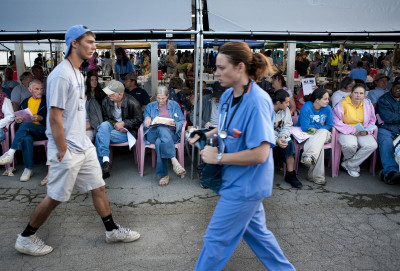
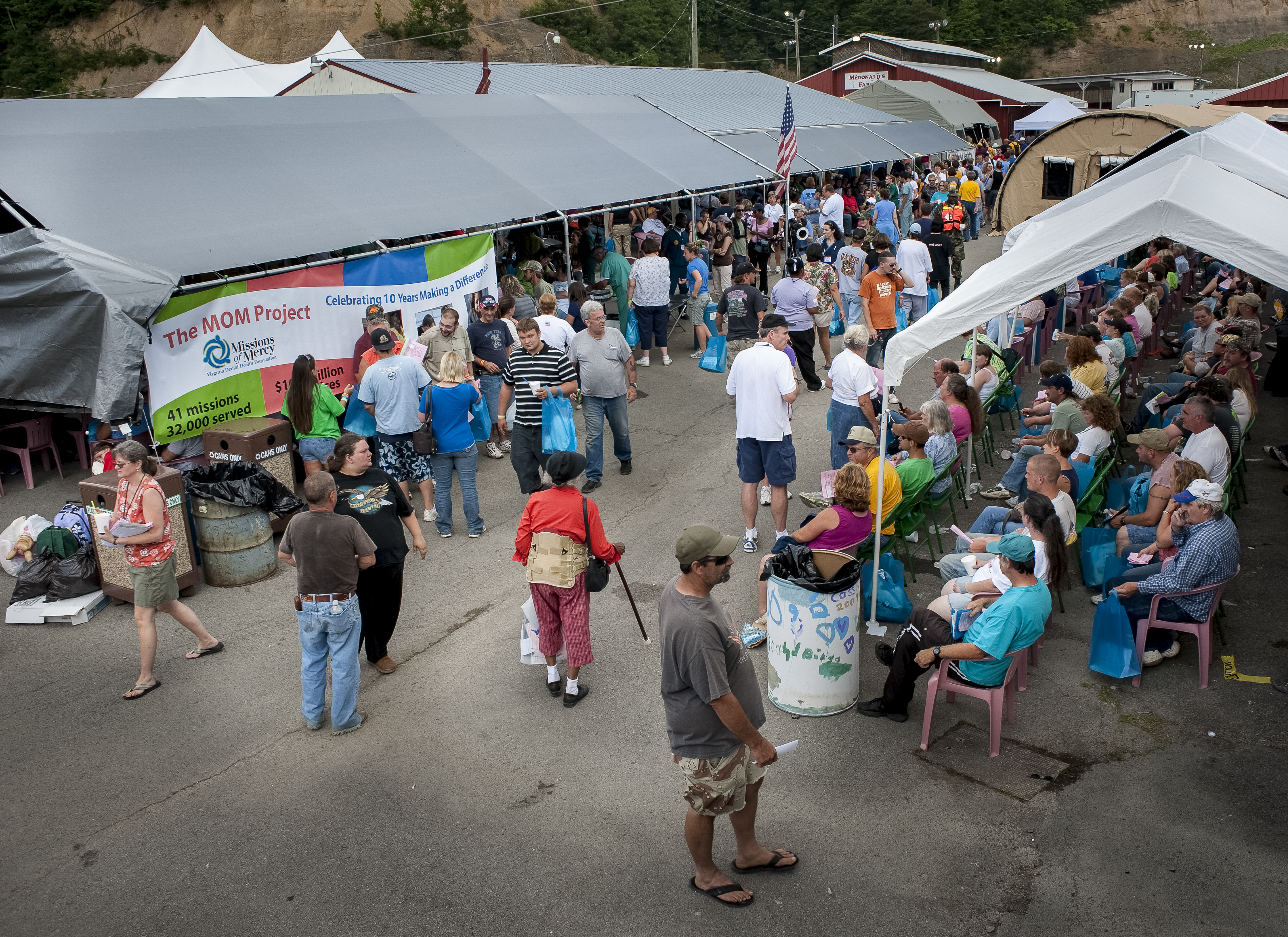
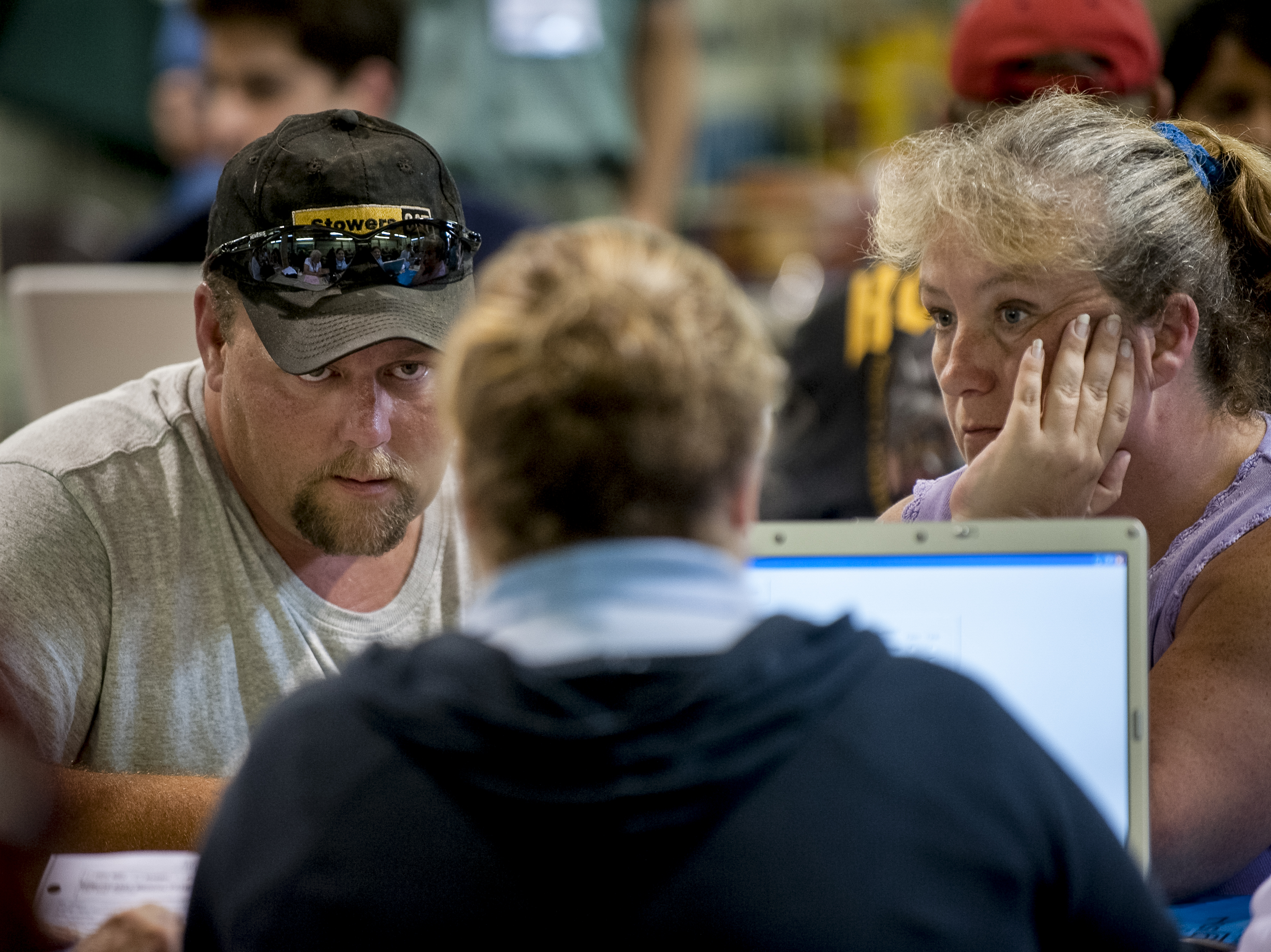
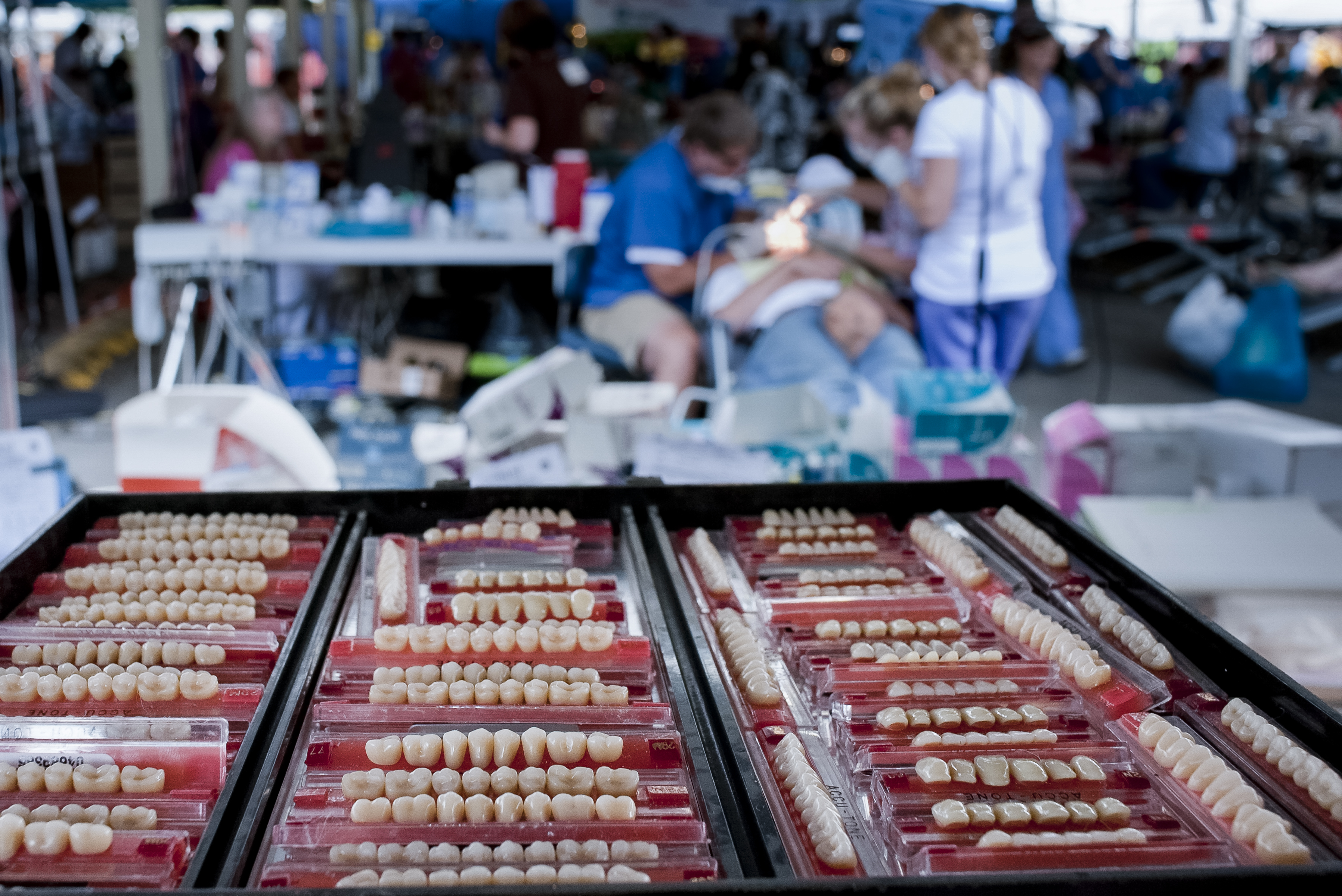
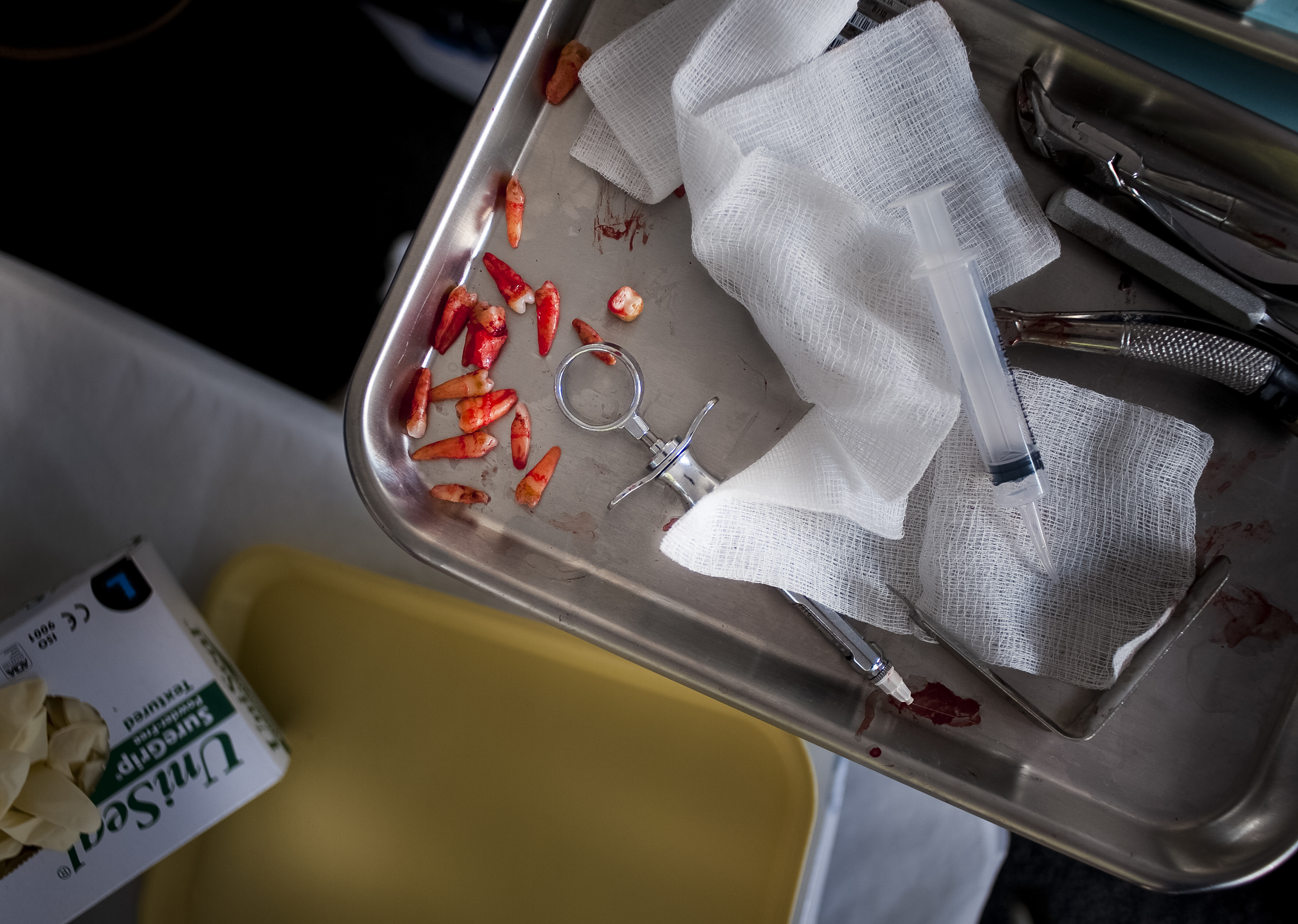
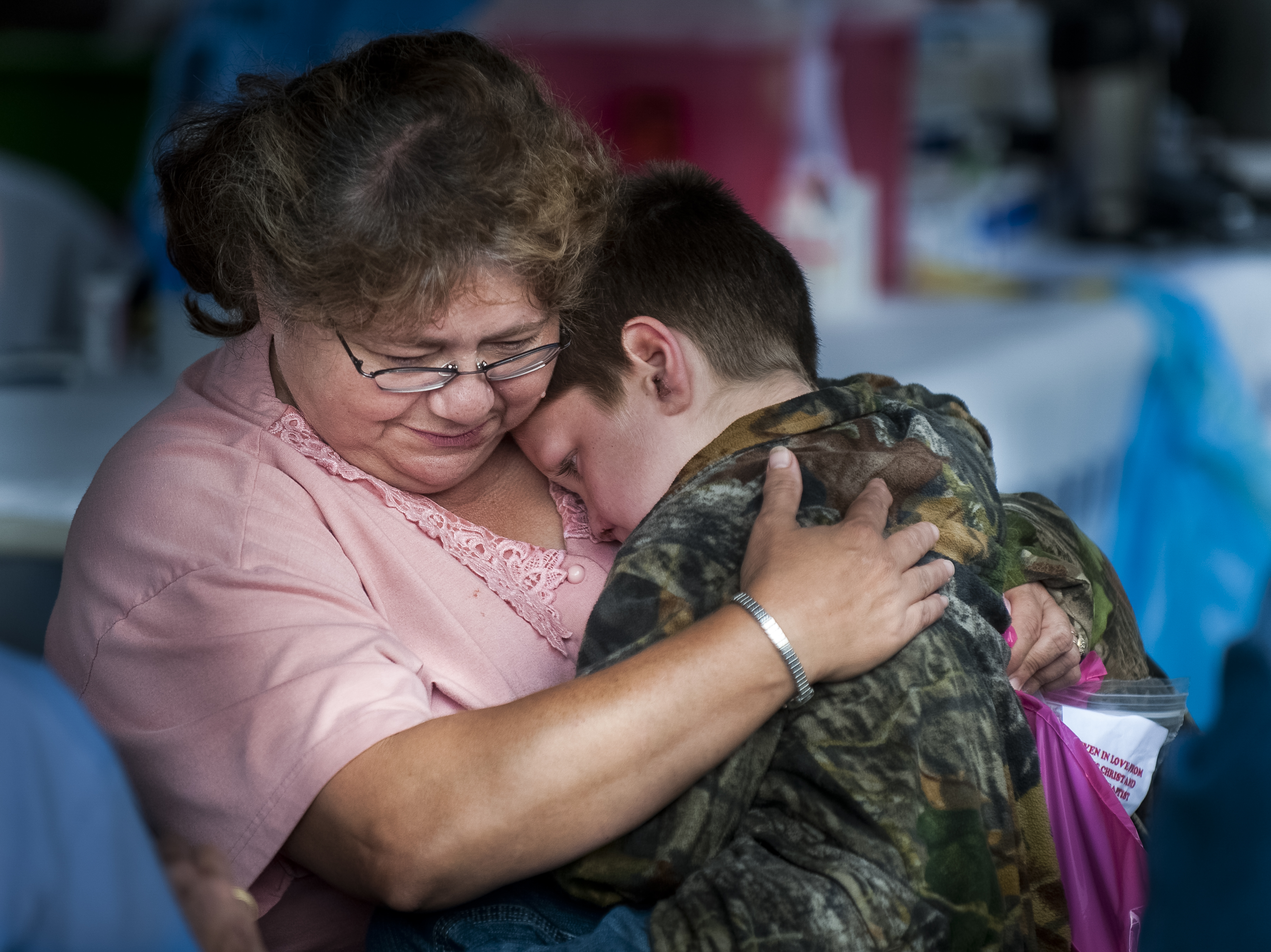
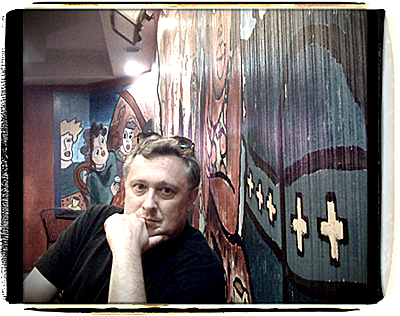 Pete Marovich is a photojournalist based in the Washington D.C. metro area covering the White House and Capitol Hill. He is co-creator of American-Journal Magazine and serves as photo editor.
Pete Marovich is a photojournalist based in the Washington D.C. metro area covering the White House and Capitol Hill. He is co-creator of American-Journal Magazine and serves as photo editor.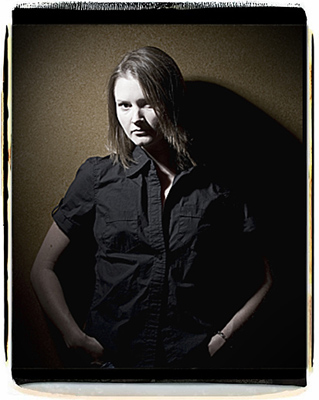 Jenny Jones is the editor and co-creator of American-Journal. She has more than 15 years of experience working for daily newspapers and monthly magazines. She is a freelance writer based in Virginia.
Jenny Jones is the editor and co-creator of American-Journal. She has more than 15 years of experience working for daily newspapers and monthly magazines. She is a freelance writer based in Virginia.
One thought on “Healthcare Never-Never Land Photography by Pete Marovich • Story by Jenny Jones”